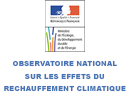ADAPTATIO – Integration of adaptation to climate change in city planning projects design: new tool(s) and new job(s)
Adaptation to climate change is a more recent topic than GHG reductions, than “mitigation”. This has a direct impact on current tools implemented to address the adaptation topic. If measures and tools arise to begin adaptation actions on European, national and local scales, this is not yet the case on the city planning projects scale.
Tools, labels or approaches currently address the stakes of mitigation and summer climate wellbeing only. This can also be felt in the evaluation of energy consumption which only relies on temperature current data, confirming that energy quality of city planning is today evaluated in the light of past climate and not of the future one. Only the resistance to extreme and violent events (for example, storms) seems to be taken into account on the basis of climate evolutions emphasizing their strength.
Besides, the water deficit of groundwater observed especially in France since few years is probably a signal of the availability evolution of this resource.
Climate change adds to influencing factors such as population growth and city planning. All these factors could accentuate summer droughts periods in the coming decades.
Thus, current city planning is not evaluated according to a future climate which will necessarily influence the energy consumptions of heating and air-conditioning as well as the water needs. Addressing from now on the issue of adaptation to climate change should also make possible to avoid, or at least to reduce, the “inadaptation”, which could be defined as the actions initially implemented to reduce vulnerability to climate change which have as unintended consequences the increase of both the risks of climate change and/or the vulnerability of other sectors, persons, and so on..
Our project aims to propose a new methodology allowing the issue of adaptation to climate change to be addressed when designing city planning projects. It is indeed necessary to think adaptation and mitigation together and in advance. We will focus on two future key-resources: water and energy.
This methodology will rely on one hand on the development of a simple new tool of evaluation of energy and water consumptions of a planning project according to different climate scenarios and on the other hand on a new organization of thinking about the energy stakes during a project bringing into play all stakeholders of a project in order to involve them in the innovation process. This new organization will also be made around a new actor whose job is still to be defined (which is one of the purposes of this project): the designer, who will have to make easier the cooperation on a planning project.
Planned valorization aims next to share developed tools and methods between local authorities and city planning actors, to ensure research visibility in France and abroad, and to disseminate research results in the academic world.
Coordinator(s) : Morgane COLOMBERT, Ecole des Ingenieurs de la ville de Paris
Partnerships:
– Equipe de Recherche- Ecole des Ingénieurs de la Ville de Paris (EIVP)
– EGIS Concept, Elioth
– CSTB, Département Economie et Sciences Humaines
– CDC Climat
– Ville de Paris
Funding : MEDDE
Budget : 251.494 €




